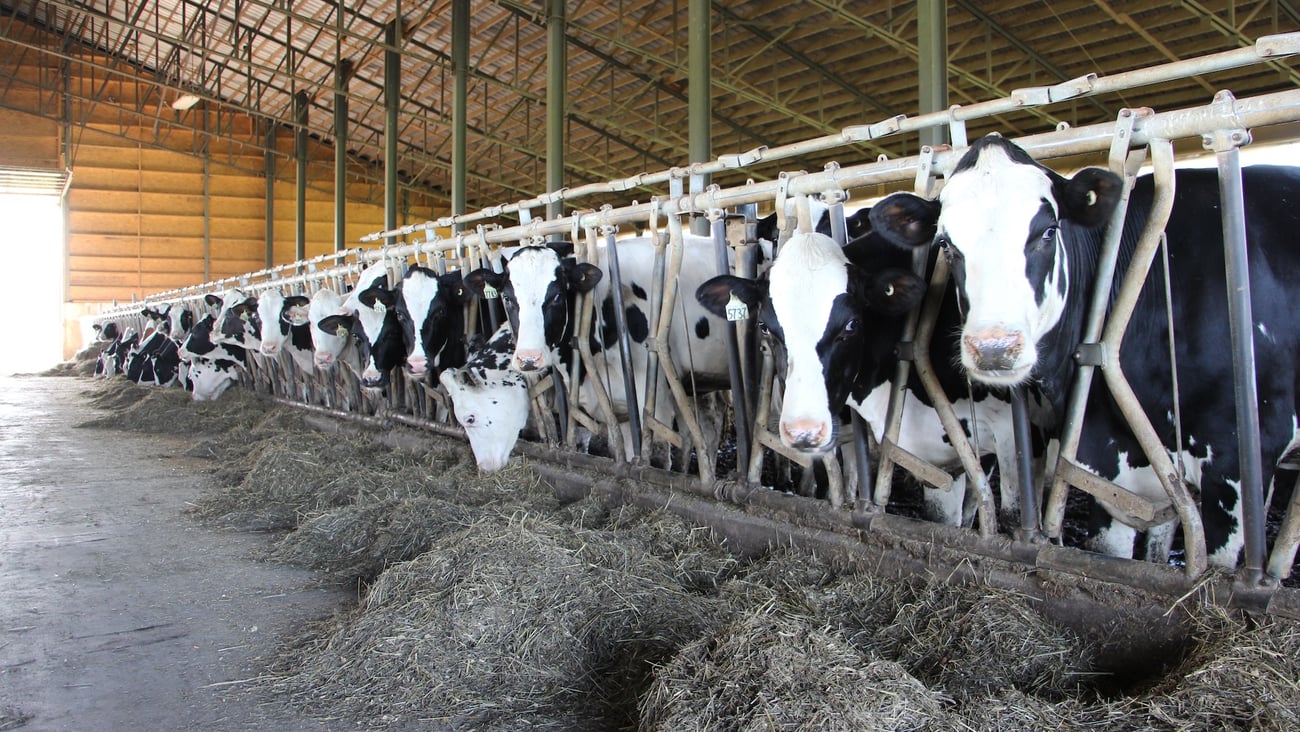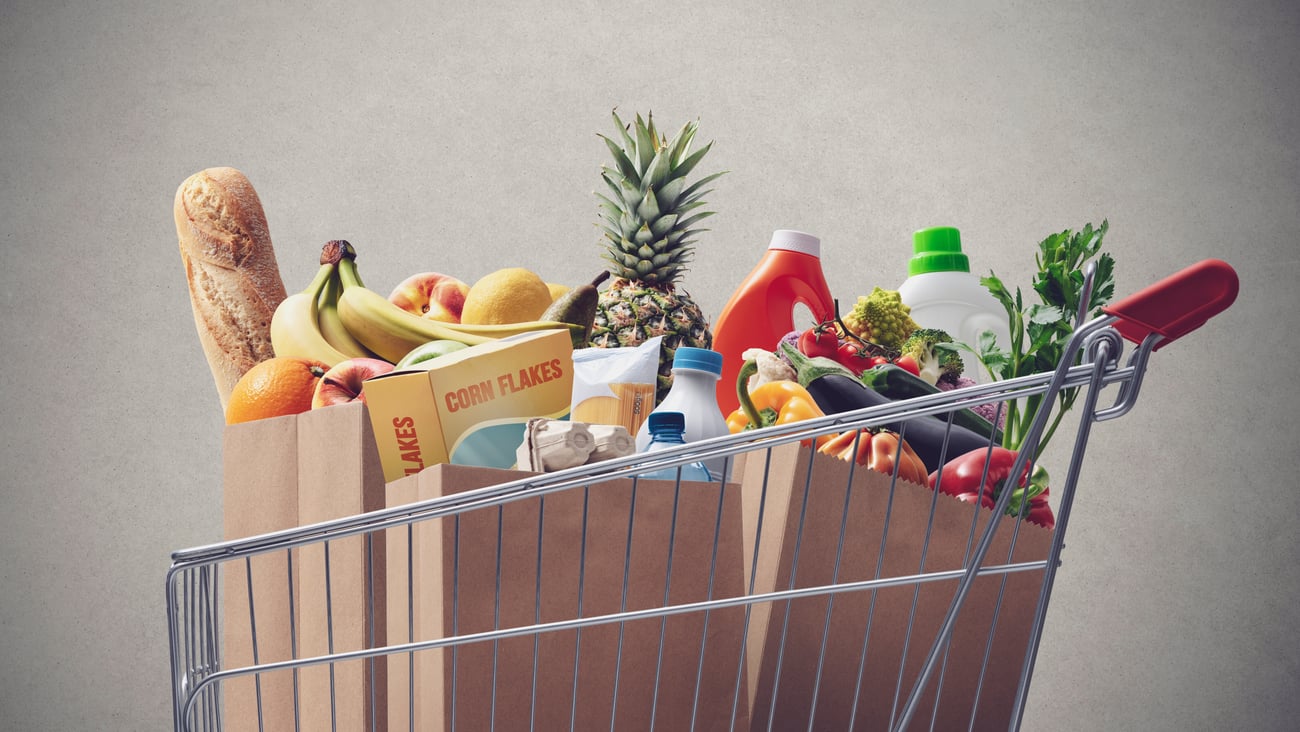Buttergate: The 'hard' truth about Canadian butter
Canadians have taken to social media recently to say they've noticed that some--not all--butter is harder and fails to get softer at room temperature. Some people blame winter and the colder weather. The truth is more troubling than that. Disturbing reports are now pointing at some farming practices that may have altered the quality of the butter we buy.
Since last summer, thousands of dairy farmers have been using livestock feed that has palm oil in it. Sources suggest it has been going on for more than a decade, but the problem has become more apparent since August of last year, when butter demand went up suddenly, forcing the dairy industry to produce more dairy fat.
To explain it simply, palm oil given to dairy cows increases the proportion of saturated fat in milk compared to unsaturated fat, thus increasing the melting point of butter. This explains why butter made from cows fed with palm oil remains difficult to spread at room temperature. So, if you wondered why butter is harder at room temperature, this is likely the most plausible reason. Another clue: Many specialty products such as organic butter and butter made from grass fed cows don’t appear to have been affected.
The use of palm oil in dairy has been going on for at least a decade without consumers knowing about it, but since last summer the practice suddenly expanded to hundreds of farms, if not thousands. Demand for butter in 2020 was up 12.4% in Canada. Having more Canadians cooking up a storm at home has added more stress on dairy production, and more specifically, on the production of butter fat. Hard butter is now more noticeable because so many farms are participating in the practice. It is believed about 30% to 35% of Canadian dairy farmers are doing this to meet their lucrative production quotas, but nobody knows for sure, not even the Dairy Farmers of Canada or the Canadian Dairy Commission.
There is nothing illegal about giving palm oil to dairy cows, and nothing prevents dairy farmers from doing this. However, the impact on the end product has been noticed by a growing number of Canadian consumers. Further, little research has been conducted on how giving palmitic acids to dairy cows could compromise the health of both animals and humans. What we do know is that palm oil may increase certain heart disease risk factors in some people. The effects of palm oil production on the environment, health and lives of indigenous people in different parts of the world are well documented and deeply concerning. It's an ethically questionable practice, given the “Blue Cow” campaign by dairy farmers that is constantly reminding us that dairy products in Canada are amongst the best in the world.
Complaints have been filed with processors, which then get filed with the dairy boards. The number of complaints is making this situation tricky and dairy boards have been unbelievably quiet on the hard butter issue on social media and elsewhere.
This subject is obviously taboo in the industry and many dairy farmers with a high sense of integrity are seemingly upset and want this practice to cease immediately. Nobody in the industry wants to openly address the issue, at least not within media. Some boards like the British Columbia Marketing Board released a statement last October about “non-foaming milk” and “free fatty acid.” The statement is available for everyone to read, though the highly technical nature of the message may not have drawn much attention beyond the farming community.
The presence of palm oil in dairy fat can be detected, but it requires time and effort. Some firms are apparently trying to develop a technology that will allow dairy manufacturers to detect palmitic acids in the product they receive. Valacta in Quebec is apparently one of them, and the technology could be ready in months. Sources are suggesting that dairy boards want to use this technology to discipline farmers, allowing manufacturers to reject sub-par butter fat in the interest of the industry and the public.
Most dairy farmers want this practice to stop as soon as possible. The news of palm oil being used on dairy farms compromises the quality of dairy products many Canadians love. The use of palm oil also breaches the moral contract dairy has with Canadians. Unlike other countries, milk is essentially a public good in Canada. Not only do dairy farmers have exclusive government-sanctioned quotas, which make it a privilege for the few to produce milk, but Canadians taxpayers have also given $1.75 billion to the industry to assure us continued access to wholesome dairy products.
Dairy Farmers of Canada should have asked Ottawa to ban these products from the market, or at least openly condemned the practice. Or, a step in the right direction would be to supply dairy farmers with Canadian grown oils in their feed over imported palm oil. However, they chose to protect their image. So disappointing.
Again, not all butter is harder in Canada, some have maintained the same quality. And no one knows for sure which brands or products have been affected. A Buttergate is not what the industry needs, or what Canadians deserve. Let's hope the dairy industry can clean itself up before its moral contract with Canadians is permanently damaged.




